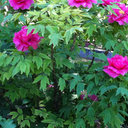Jasmine tea consumption and upper gastrointestinal cancer in China.
关键词
抽象
BACKGROUND
Epidemiological data on green/jasmine tea and esophageal as well as gastric cancer are limited and inconclusive.
METHODS
In order to study the effect of jasmine tea in upper gastrointestinal (UGI) cancers, we evaluated 600 esophageal squamous cell carcinoma (ESCC), 598 gastric cardia cancer (GCA), and 316 gastric non-cardia cancer (GNCA) cases and 1,514 age-, gender-, and neighborhood-matched controls. Odds ratios (ORs) and 95% confidence intervals (CIs) were estimated from logistic regression adjusted for matching factors and potential confounders.
RESULTS
Among controls, 35% of males and 8% of females reported consumption of jasmine tea; other tea consumption was rare. Consumption of jasmine tea (ever vs. never) was not associated with risk of ESCC (OR = 1.15, 95% CI 0.92–1.44), GCA (OR = 1.14, 95% CI 0.88–1.37), or GNCA (OR = 0.85, 95% CI 0.64–1.15) in males and females combined. Among males, cumulative lifetime consumption showed a significant positive dose–response relation with ESCC risk, but not for GCA and GNCA. In exploratory analyses, occupation affected the relation between tea and ESCC such that consumption in males was associated with increased risk only in non-office workers.
CONCLUSIONS
Overall, we found no evidence for a protective effect of tea in esophageal or gastric cancer. Further studies of the potential effects of thermal damage, tea quality, and water quality on UGI cancers are suggested.



